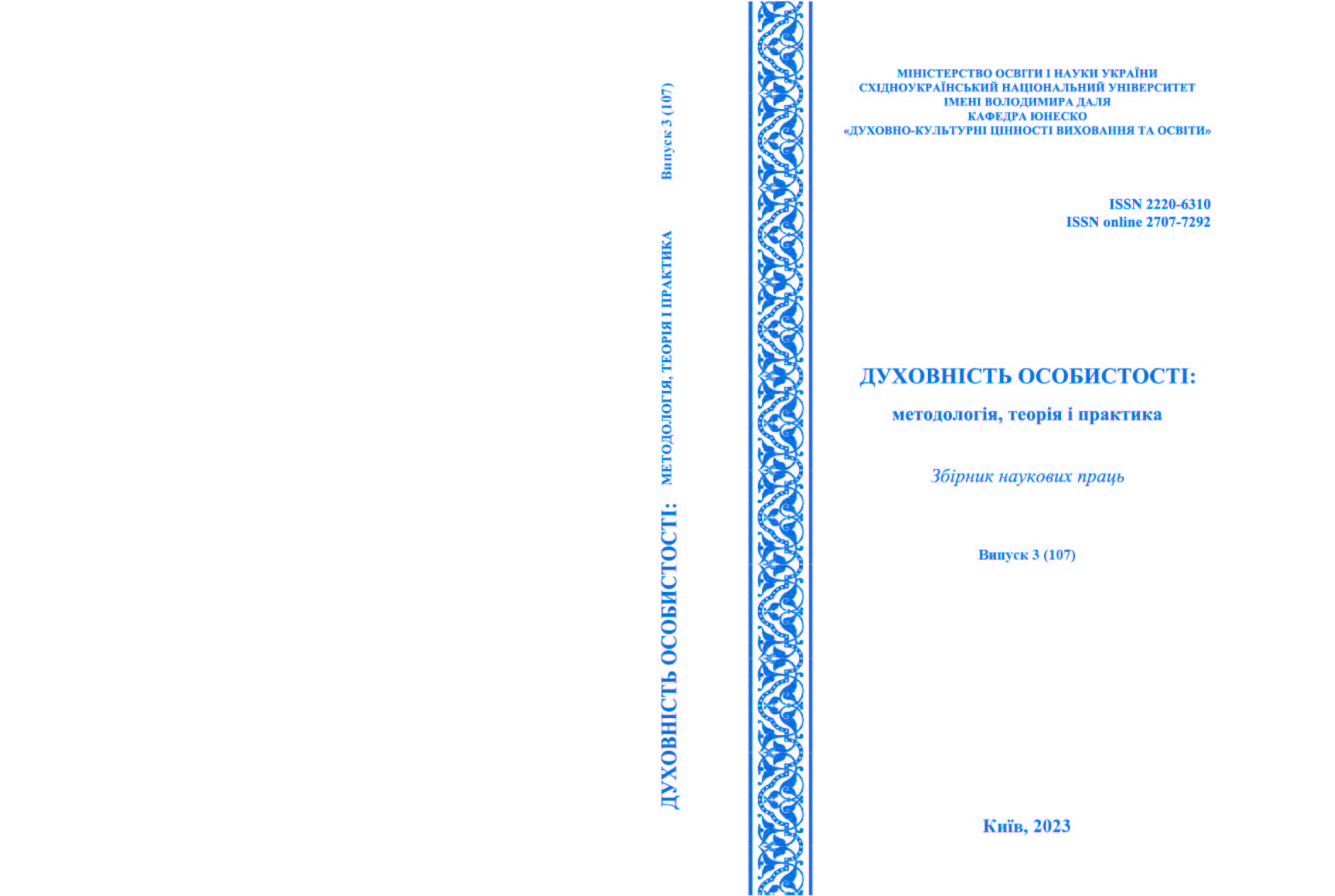EDUCATION OF THE ABILITY TO IMPLEMENT THE PRINCIPLES OF INFORMATION CULTURE IN AN INCLUSIVE SPACE FOR FUTURE SPECIALISTS IN THE FIELD OF EDUCATION / PEDAGOGY
DOI:
https://doi.org/10.33216/2220-6310/2023-107-3-6-14Keywords:
information culture, information literacy education, inclusive space, future pedagogical specialistsAbstract
The article characterizes the theoretical aspects of education directions in the course of forming the ability to implement the principles of information culture in an inclusive space in future specialists in the field of Education / Pedagogy. The content of the concept of «information culture» is summarized, which is defined as a qualitative characteristic of the functioning of an individual in the area of receiving, transmitting, storing and using information, in which moral value orientations are key; the degree of knowledge for orientation in the information space and the ability to cooperate in the digital plane; the level of personal satisfaction in information communication, the efficiency of production, collection, storage, analysis, transfer and use of information to ensure a holistic vision of the world, the formation of an appropriate worldview, forecasting the results of decisions made. The integral constituent elements of the implementation of the principles of information culture in an inclusive space, which include the formation of information literacy by means of audiovisual, logical, conceptual and terminological, technological, and communication cultures, are defined. Aspects of the education of the ability to implement the norms of information culture in an inclusive space are characterized through the following functions: outlook that involves the formation of the perception of the information picture of the educational process with the inclusion of the norms and principles of inclusion; regulatory that involves the inclusion of inclusive norms and rules with the use of information technology platforms and tools in professional training; cognitive that involves the education of a system of beliefs based on the acquired knowledge of future specialists about the content of inclusion; communicative that involves the inclusion of the principles of information culture in the choice of a communicative strategy; valuable that involves the production of a personal educational understanding of the role of information culture in the creation of an inclusive space.

